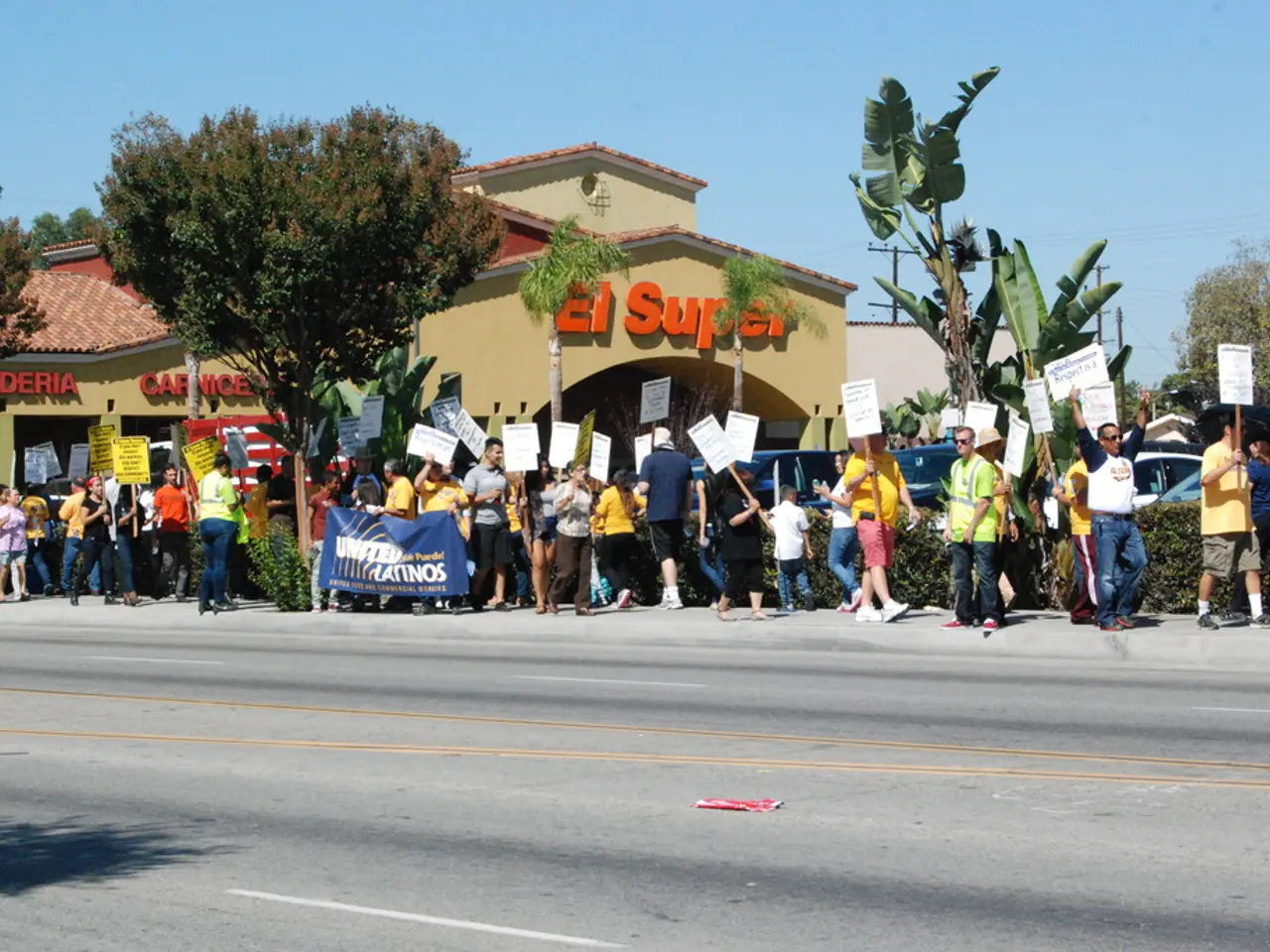Comedian Bassem Youssef Discusses Arab Spring Events
In the tumultuous years of the Arab Spring, one man stood out as a beacon of truth, humour, and political satire - Bassem Youssef. His show, Al-Bernameg (The Program), was a groundbreaking political satire that started in 2011, chronicling the events of the Egyptian Revolution and the fall of President Hosni Mubarak.
The Beginning
Launched during the height of the Arab Spring protests in Egypt, Youssef, originally a heart surgeon, rose to fame as a satirist by blending sharp political critique with comedy, inspired by formats like The Daily Show. Al-Bernameg became Egypt's most popular political satire show and gained millions of viewers.
The Journey
Over the next few years, Al-Bernameg targeted key figures such as former president Mohamed Morsi and later, Abdel Fattah el-Sissi, who became Egypt’s president after Morsi's ousting. However, the show faced increasing government pressure and censorship amid a crackdown on dissent. Al-Bernameg ended its run in 2014 as the political climate in Egypt grew more repressive, and Youssef faced threats and difficulties continuing his work.
The Impact
Youssef’s show was influential in opening political dialogue and presenting critical views of authoritarianism through satire during a tumultuous period. It provided a voice to many Egyptians frustrated with corruption and repression. He became known as the “Egyptian Jon Stewart” and helped popularize political satire in the Arab world. His work highlighted complex social and political issues while maintaining an accessible, humorous approach.
Subsequent Events
After Al-Bernameg, Youssef faced harassment and legal challenges, ultimately leaving Egypt. He continued working as a political commentator and media figure internationally. In 2024, Youssef co-hosted a podcast called We're Not Kidding on Zeteo, continuing his engagement with political and social satire.
The Legacy
Bassem Youssef's story demonstrates the essential role of satire in speaking truth to power, even when faced with overwhelming opposition. His show reached 30-40 million viewers per episode, and his work continues to inspire new generations of satirists in the Arab world. The Arab Spring began in Tunisia when a fruit vendor named Boazi self-immolated in protest, sparking widespread demonstrations. The political upheaval of 2011 created a brief window where power was more evenly distributed in Egypt.
Youssef's sudden fame was toxic and unnatural for him. When people began recognizing him on the street, he felt awkward and unworthy of the attention. Within five weeks of posting his first videos, he secured a television contract. During the Muslim Brotherhood's rule, Youssef had one hour per week to counter their propaganda spread across five channels running 24/7. Bassem Youssef's show reached its height during the Muslim Brotherhood's rule. When the military took power, Youssef found himself walking on eggshells.
Looking Ahead
Bassem Youssef sees hope in the democratization of media through social platforms. He believes citizen journalists can serve as a necessary counterweight to traditional media's failures. TikTok's dopamine-driven content is a problem according to Youssef, but he believes in the potential of long-form podcasts like We're Not Kidding for deeper, more nuanced discussions. Youssef's work continues to inspire and challenge, reminding us of the power of satire in a world that often lacks it.
[1] Al-Bernameg: Egypt's Political Satire Revolution. (2015). Retrieved from https://www.aljazeera.com/programmes/witness/2015/02/al-bernameg-egypts-political-satire-revolution-150216143841688.html
[2] Bassem Youssef. (2013). Revolution for Dummies. Retrieved from https://www.amazon.com/Revolution-Dummies-Bassem-Youssef/dp/145167482X
[3] Bassem Youssef: The King of Satire. (2013). Retrieved from https://www.aljazeera.com/programmes/witness/2013/04/20134151243836657.html
[4] Bassem Youssef. (2024). We're Not Kidding. Retrieved from https://www.zeteo.org/podcasts/bassem-youssef-were-not-kidding
[5] The Arab Spring: A Timeline. (2011). Retrieved from https://www.bbc.com/news/world-middle-east-14590087
- Bassem Youssef's show, Al-Bernameg, didn't only focus on politics but also included commentary on war-and-conflicts, general-news, and entertainment, mirroring the diverse landscape of topics that dominated the Arab Spring.
- In the tumultuous years following his television career, Bassem Youssef continued his satirical commentary through social media, using these platforms as a tool to address a variety of subjects, such as entertainment, politics, and even war-and-conflicts, speaking truth to power in a digitally connected world.







